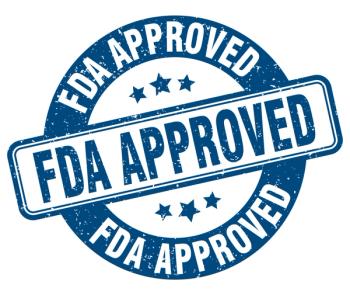
Should orlistat, triptans go OTC? R.Ph.s speak out
On Jan. 23, the Food & Drug Administration's Nonprescription Drugs Advisory Committee and Endocrinologic and Metabolic Drugs Advisory Committee began a review of GlaxoSmithKline's application proposing OTC use of 60-mg orlistat (Xenical) capsules to promote weight loss in overweight adults when used along with a reduced-calorie and low-fat diet. The agency is expected to make a decision by March. The drug's proposed name is Alli.
On Jan. 23, the Food & Drug Administration's Nonprescription Drugs Advisory Committee and Endocrinologic and Metabolic Drugs Advisory Committee began a review of GlaxoSmithKline's application proposing OTC use of 60-mg orlistat (Xenical) capsules to promote weight loss in overweight adults when used along with a reduced-calorie and low-fat diet. The agency is expected to make a decision by March. The drug's proposed name is Alli.
Emphasizing that obesity has devastating consequences and that orlistat has a favorable safety profile, Tim Covington, Pharm.D., Bruno Professor of Pharmacy and director of the Managed Care Institute at McWhorter School of Pharmacy, Samford University, said, "If a lower strength provided efficacy and a lower potential for adverse effects, I think the FDA should give very serious consideration to approving the Rx-to-OTC switch." Patients have proven that they can be effective in the self-management of a variety of clinical conditions," he said.
Paul Doering, Distinguished Service Professor of Pharmacy Practice and co-director, Drug Information & Pharmacy Resource Center, College of Pharmacy, University of Florida, Gainesville, gave the orlistat switch the nod. "There's no addiction liability, no sedation or drowsiness." Still, Doering advised that without a comprehensive dietary program to include counseling, "patients would be wasting their money. People would need to know what to expect."
Fred Mayer, R.Ph., Pharmacists Planning Service, San Rafael, Calif., gave thumbs-up to an OTC orlistat. He noted that patients who take herbals for weight loss, e.g., ephedra and ma huang, are at risk because these products are not FDA-approved. "Orlistat works, although it does have some side effects."
Meanwhile, in a separate development the Medicines and Healthcare Products Regulatory Agency in London has launched a public discussion on a proposal to allow sumatriptan and zolmitriptan-indicated for the acute relief of migraine attacks-to be available without prescription under the supervision of a pharmacist.
Recently, 299 respondents took another Instant Poll on Drug Topics' Web Site, which asked, "Should triptans go OTC?" (See chart for results.)
Doering does not think the triptans will get the green light to go OTC. "Neither of those drugs has a snowball's chance on a hotplate of ever getting approved in the United States as OTC because of the serious heart attack side effect. Even though these are rare complications, a physician is in a proper position to judge if a person is at special risk with, for example, underlying heart disease or cardiac arrhythmia.
Johnson cited the following reasons that could keep triptans Rx: a high rate of overuse, leading to medication- induced headache; the unsupervised use of the drugs in patients in whom oversight by a physician/neurologist could be helpful; and the con-sequence of coronary vasospasm. Covington also had concerns about the potential for overuse, misuse, and significant safety issues.
Mayer favors a triptan OTC switch provided there is the establishment of a pharmacists-only third class of drugs, offering patients with quick access to the drug and to pharmacist supervision and counseling.
Newsletter
Pharmacy practice is always changing. Stay ahead of the curve with the Drug Topics newsletter and get the latest drug information, industry trends, and patient care tips.























